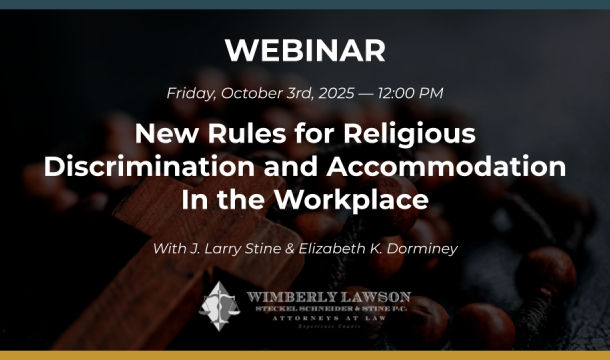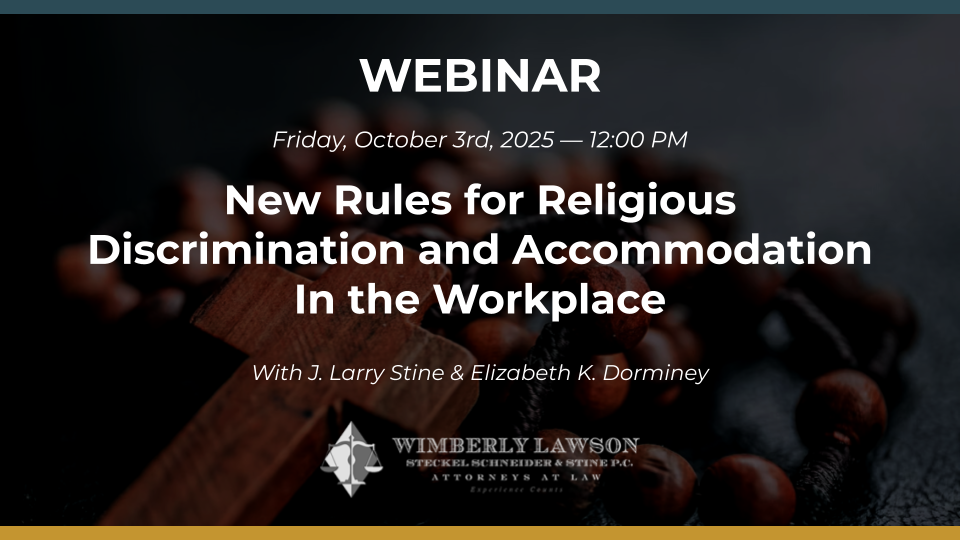NLRB to Tackle Joint Employer Standard With Some Rulemaking
The NLRB's standard that determines whether two or more entities are "joint employers" has been marked by uncertainty in recent months. It looks like the NLRB intends to resolve that uncertainty by using the rulemaking process. The NLRB rarely uses the rulemaking process, so when it does, it is generally a big deal.
As we discussed in a previous blog post, the NLRB's joint employer standard underwent a major change during the Obama administration. The Obama era standard, set forth in Browning Ferris Industries, was controversial because it reversed 30 years of NLRB precedent and made the standard to prove a joint employer relationship less stringent, holding that a joint employer relationship could be supported by evidence that a company merely had indirect or potential control over workers who were formally employed by another entity.
Late last year, the Trump NLRB issued a decision, Hy-Brand Indus. Contractors, Ltd, which overruled the Obama era standard issued in Browning Ferris Industries. Hy-Brand took us back to the previous standard, under which multiple entities could be considered joint employers of a group of employees only if each had exercised direct and immediate control over a group of employees.
However, due to some possible ethical violations, the Hy-Brand decision was vacated.
Now, the NLRB has begun the internal process necessary to consider rulemaking on the joint-employer standard. Any proposed rule would require approval by a majority of the five-member Board, and the next step would be the issuance of a Notice of Proposed Rulemaking.
"Whether one business is the joint employer of another business's employees is one of the most critical issues in labor law today," says NLRB Chairman John F. Ring. "The current uncertainty over the standard to be applied in determining joint-employer status under the Act undermines employers' willingness to create jobs and expand business opportunities. In my view, notice-and-comment rulemaking offers the best vehicle to fully consider all views on what the standard ought to be. I am committed to working with my colleagues to issue a proposed rule as soon as possible, and I look forward to hearing from all interested parties on this important issue that affects millions of Americans in virtually every sector of the economy."
Any proposed rule must be published in the Federal Register and the public will have a specified time period to review the proposed rule and submit public comments on it. We'll be watching for more developments on this issue.

Kathleen J. Jennings is a former principal in the Atlanta office of Wimberly, Lawson, Steckel, Schneider, & Stine, P.C. She defends employers in employment matters, such as sexual harassment, discrimination, Wage and Hour, OSHA, restrictive covenants, and other employment litigation and provides training and counseling to employers in employment matters.
Related Content
Get Email Updates
Recent Content

Trump Nominates Appointments to NLRB and EEOC but Policy Changes Likely to Be Delayed

DOL Launches Self-Audit Programs Designed to Help Employers Improve Compliance

DOL Must Release EEO-1 Reports to the Public under Open Records Laws

Current Advice on Active-Shooter Situations

New Policy for Federal Workers and Religious Expressions

